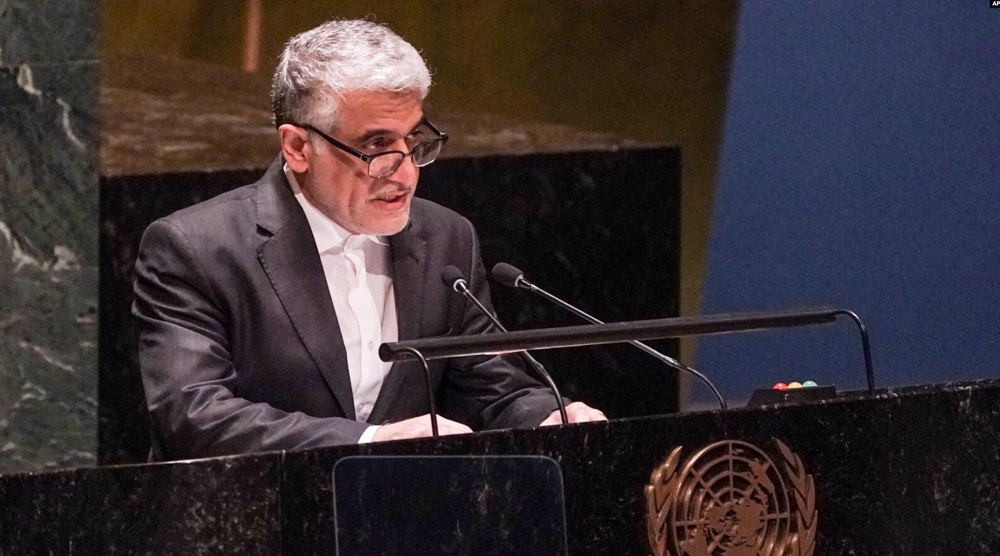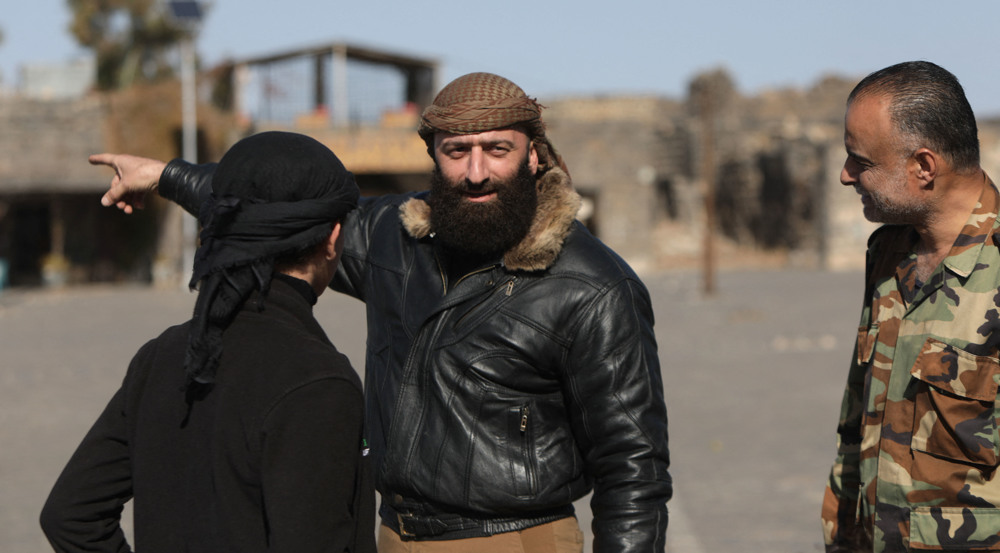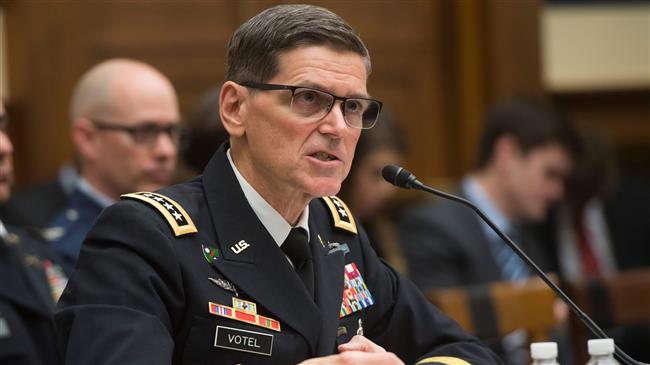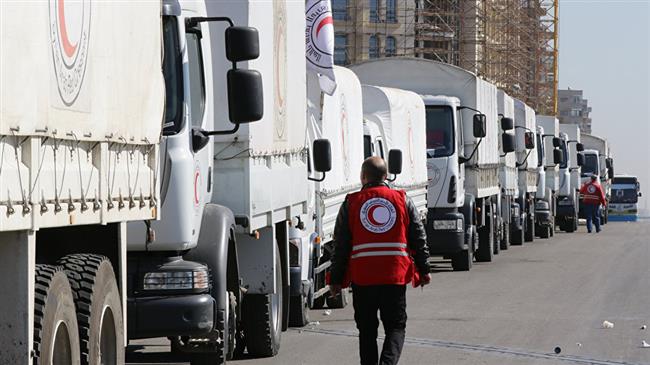Aid reaches internally displaced Syrians at Rukban camp near Jordan border
A convoy of the UN and the Syrian Arab Red Crescent (SARC) has delivered aid, including medical supplies and basic commodities, to tens of thousands of internally displaced Syrians, who are enduring freezing temperatures and harsh living conditions in a refugee camp near the country’s southern border with Jordan.
SARC announced in a statement that “the humanitarian aid convoy of 133 trucks carried 8,345 food packages, the similar number of flour bags, canned food, medicine, healthcare items for children and pregnant women as well as children’s clothes.”
“SARC in collaboration with the United Nations is continuing to carry out its duty towards more than 40,000 displaced people in Rukban [refugee camp],” the statement added.
The convoy contains vaccines for nearly 10,000 children under the age of five, the UN said in a statement.
“A vaccination campaign will be launched, under the supervision of a medical team, to immunize children against measles, polio, tuberculosis and hepatitis,” SARC elaborated.
#live: @SYRedCrescent and @UNinSyria on ground in #Rukban are delivering core relief items #Syria @UN @WFP @UNICEF @UNFPA @Refugees @WHO @OCHA_Syria pic.twitter.com/FFpZ8Df3II
— Syrian Red Crescent (@SYRedCrescent) February 6, 2019
The Wednesday delivery is the first such delivery in three months as a smaller convoy from Damascus entered Rukban on November 3.
The UN says about 45,000 people, mostly women and children, are trapped inside the Rukban refugee camp, where conditions are desperate.

On January 12, a Syrian mother attempted to torch herself and her children to death in the camp after she failed to find food for her family for three straight days.
Other refugees in the camp put out the fire, which had damaged the tent, and evacuated the woman and her children to hospital.
The woman and her infant were seriously hurt while the two other children suffered minor injuries.
This is while Geneva-based international aid agency Doctors Without Borders (MSF) has put the number of refugees living there at some 60,000.
In October, the so-called Syrian Observatory for Human Rights (SOHR) said people in Rukban have been without access to food and humanitarian aid for several months, highlighting that the tough situation was further complicated with a closed border by Jordan.
In the same month, Amman re-opened the Nasib border crossing with Syria for the first time in three years, as the crisis in Syria is gradually winding down thanks to the Syrian army’s decisive gains against terrorists.
Jordan had closed its border with Syria following an attack on its soldiers by Daesh Takfiri terrorists back in 2016.

The area where Rukban is located is controlled by the former US-backed Shuhada al-Qaryatayn militant group. The extremists were supposed to evacuate to northern Syria in accordance with a Russian-backed deal, but refused to do so.
Syria has been gripped by foreign-backed militancy since March 2011. The Syrian government says the Israeli regime and its Western and regional allies are aiding Takfiri terrorist groups wreaking havoc in the country.
IRGC forces launch final stage of major drill in western Iran
Joseph Aoun voted Lebanon’s president, ending 2-year deadlock
Iran protests to France over French city’s insulting poster
MP Corbyn challenges UK govt. over complicity in Israel's Gaza genocide
Iran performs first fetal brain surgery in West Asia
Lebanon’s MPs trying to pick new president after 12 failed attempts
UNICEF: Israel killed at least 74 children in Gaza in first week of 2025
VIDEO | Nippon Steel takeover bid














 This makes it easy to access the Press TV website
This makes it easy to access the Press TV website